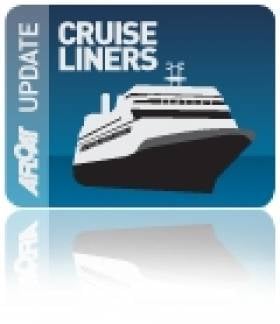Displaying items by tag: Pacific Princess
The near 700-passenger capacity ship operated by UK based Voyages of Discovery is scheduled to call at several Scotish ports before returning to Portsmouth via the North Sea.
Discovery has eight decks with facilities to include two swimming pools, one with a retractable roof, jacuzzis, lounges, bars, a library and gymnasium, lecture theatre, cinema, restaurants, an internet cafe, shop, beauty salon and a medical centre.
She was built in 1971 as the Island Venture, then renamed Island Princess after purchased by Princess Cruises, alongside her sister Pacific Princess which appeared in the popular US TV series sitcom the 'Love Boat' broadcast by ABC between 1977-1986.
In total there will be four cruise-calls during the season to Douglas but the next visit will be not until July when P&O Cruises Adonia calls on the 17th. The ten-year old 710 passenger vessel is due to be named by Dame Shirley Bassey at a ceremony held in Southampton later this month.
Also calling to Douglas will be Oceania Cruises brand new 60,000 tonnes / 1,250 passenger Marina on the 24th July and the final call is to be made by Noble Caledonia's Japanese built Clipper Odyssey in mid-August.
- Killybegs
- Cork
- Discovery
- Marina
- Ringaskiddy
- Cruise Liners
- Princess Cruises
- southampton
- Isle of Man
- P&O Cruises
- Ports and Shipping News
- Manx
- Voyages of Discovery
- Douglas
- Douglas Bay
- Adonia
- Dame Shirley Bassey
- The 'Love Boat'
- ABC
- Pacific Princess
- Island Princess
- Oceania Cruises
- Cruise Liner news
- Clipper Oydessey
- Noble Caledonia




























































